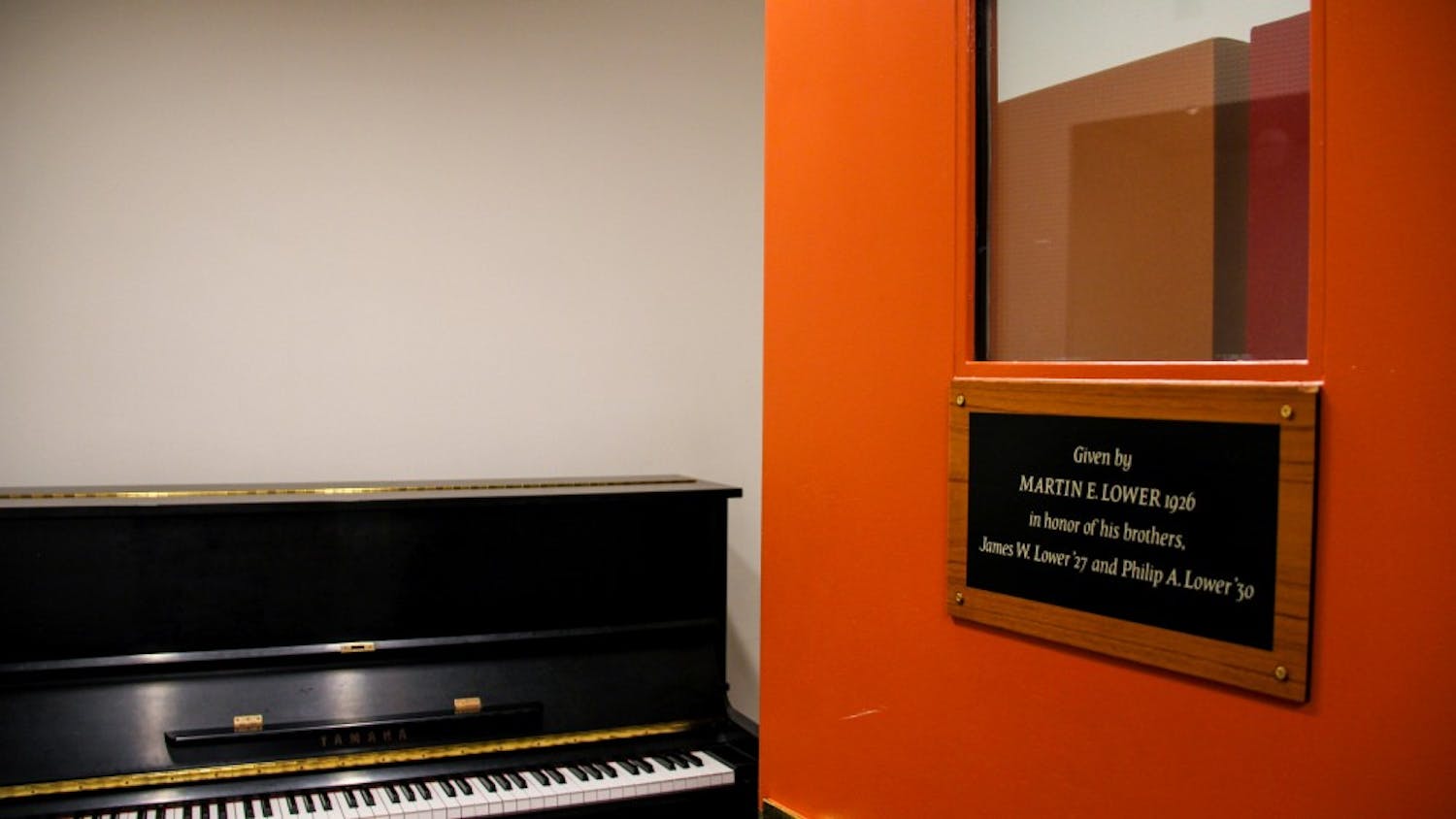Blink, blink, blink. As I stared blankly into the plain white abyss, the intimidating brigade of metronomic blinks seemed to grow louder and louder without making a single noise. How could a cursor, an enemy no longer than 20 pixels make me, a 6-foot-3-inch first-year, feel so defenseless? My already intense feelings of torment, defeat and worry manifested into a single nightmare of emptiness, my fervent and enthusiastic inspirations felt as though they had evaporated into thin air. I was distraught. For every moment my LED-illuminated eyes stared at my blinking nemesis, I could feel an arrogant cursor staring back at me. I’ve been staring at “Write a caption...” on Instagram for five minutes.
After what felt like ages of thinking, writing, revising and drafting, I finally decided to caption my Instagram photo with a singular starry-eyed emoji. Why?
While for some, writing can be a blissful and sweet literary escape from the world around them, for the majority of us it can be an incredibly daunting and cumbersome process — even in applications as light as an Instagram caption. Although my account of attempting to write a caption is embellished, it would be unfair to say that, in one way or another, you haven’t experienced a wicked case of the modern-day writer’s block too, whether it be on the Internet or not.
And while I’m not your timely knight rescuing you from your various writers’ blocks, I suppose I can still be chivalrous by taking you on a brief adventure through my perception of our composition kingdom.
The way I see it, our online writings and postings are getting shorter, whether it be Instagram captions, blogs or even YouTube tutorials. While years ago those who captioned their photos with less than 10 hashtags were social media outcasts, today I scroll through my feed observing posts with simple captions quite similar to my own, like “senior things (:,” “life recently” and “[ghost emoji].” Arguably, we are entering an age of online brevity.
According to TIME magazine, we have an attention span of eight seconds, shorter than that of a goldfish’s, due to our increasingly digitized lifestyles. In short, it’s unquestionable that in our ever-evolving age of information, it’s more important now to convey meaningful information in a lesser amount of time than ever before. As writings are now pressured to become shorter and shorter, writer’s block grows longer and longer with the added stress of making every. Single. Word. Count.
But is this added stress necessarily a bad thing? No. Less is more. With complex ideas being condensed into short texts, we can absorb information online in a matter of seconds rather than on paper in a matter of several hours. The increased efficiency of words — when allotted little space to use them — is a marvel I like to call the pressure cooker phenomenon.
In a world of Tinder bios, Snapchat group chats and 280-character tweets, I continue to see my writer’s block magnify as I sense a greater demand for complex thoughts in a short amount of words. Likewise, it may feel incredibly difficult to properly introduce yourself in 500 characters, communicate with friends in 80 characters and publicly express yourself in a matter of 140 words. Nevertheless, while incredibly difficult, I believe it is the pressure cooker phenomenon at play that turns these near-impossible feats into some great works of succinctness. Like that six-word story commonly attributed to Ernst Hemingway: “For sale: baby shoes, never worn.”
So while some may view word limits as voicing obstacles or even as the distant finish line of a marathon of writing, I believe they should be viewed more optimistically — as an opportunity to create as much as you can in the space allotted. Follow in the footsteps of the aforementioned century-old six-word story: Next time you go to write a 2,000-word essay, remember that it’s okay to have nothing written down. You may not have a start, but you already know where you’re going to finish.
In light of changes in communication moving towards condensed, small, easily digestible bits of content, I offer this column — an optimistic take on the reaction between humans and the age of information. Simply put, less is more. The widespread brevity of our internet may encourage us to be more artistic, concise, and creative in our all-around presence. In the end, to convey something concisely and impactfully is worth the writer’s block. So, whether it be in college essays, tweets, job applications, or even Instagram captions, I encourage you to treat every word like it’s your last.



